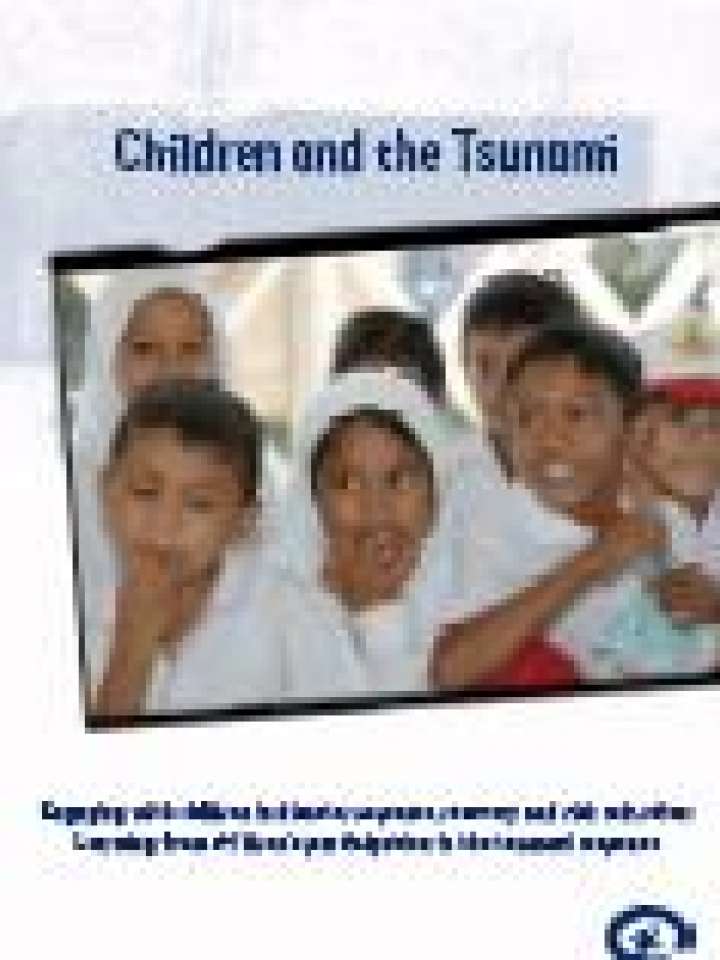Children and the tsunami: engaging with children in disaster response, recovery and risk reduction, learning from children’s participation in the tsunami response
This study is both an important work and counter-intuitive. When a major natural disaster of the magnitude of the December 2004 Tsunami or the October 2005 Pakistani earthquake strikes, the instinctive reaction of all concerned is to do whatever is necessary to save lives. The focus is on the immediate needs of food, shelter, medical help and the necessary essentials to sustain life; the victims are treated as just that - victims at the receiving end of the assistance pipeline - and they are rarely consulted about their longer term needs in these critical few days and weeks after the disaster. The concerns of children - often nearly half of all those affected - are not fully taken into account. The unintended consequences of such efforts are that we run the risk of creating states of dependency and depression in the very people we are trying to help.This important work makes a plea to all of us who go into disaster situations with the best of intentions - listen to the survivors, especially the children. It is their right to participate in decisions that affect them.
Explore further
